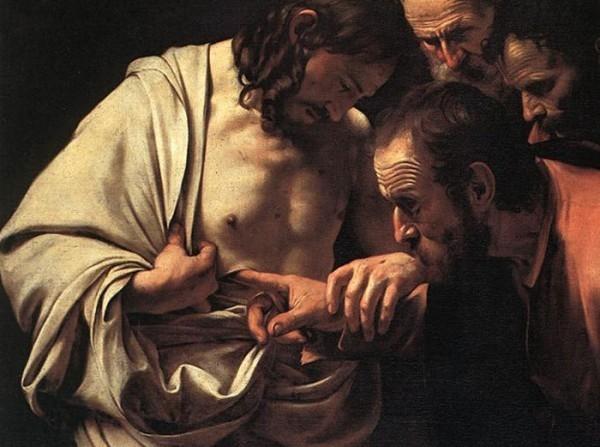John 20:28-29
Thomas answered him, “My Lord and my God!” Jesus said to him, “Have you believed because you have seen me? Blessed are those who have not seen and believe.”
The disciples have a vision problem.
Judas sees what he can gain by betraying Jesus.
Simon Peter sees his own life ending, so he denies knowing Jesus.
Mary Magdalene sees the empty tomb and assumes someone stole Jesus’ body. At first, she does not recognize him in the garden, until he says her name, and she comes back to herself.
And Thomas, despite being told by the other disciples they have seen the risen Jesus, declares he must see the evidence to believe.
They can’t see Jesus, not because he has changed beyond recognition. They can’t see him, because they haven’t changed.
That’s understandable. Their grief is fresh. Their spiritual master has been murdered, and the life they shared has apparently ended. Their own futures are uncertain. Resurrection is not something they have ever experienced. Most of all, they have not made the shift from disciples, dependent on Jesus to be with them and to teach them, to apostles, which means “one who is sent out,” to teach what they have learned and to gather more wisdom in the process.
There’s an urgency to Jesus’s appearances after the resurrection. When a spiritual master like Jesus dies suddenly, the survivors scramble to summon a spiritual maturity they have not yet attained.
Jesus is calling them to grow up quick. “Do not grieve. I am risen. Yes, yes, I’m still with you, but in a different way. I have taught you everything you need to know. Go, bring my message into the world. Keep going, because I had to go. Keep going, though there is great peril to you. I am with you always.”
Two thousand years later, we continue with the faith Jesus taught the disciples and all their descendants have taught us. We have one big advantage the apostles did not—we expect resurrection.
We are the ones who have not seen. Do we believe? Blessed are we.




